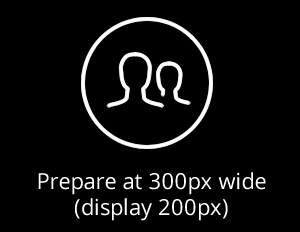
Nneka Orji
Deloitte alumna Nneka Orji on the power of career sponsorship, positive representation and the value of multicultural networks.
Since leaving Deloitte, Nneka Orji spent time as Chief Operating Officer at a wealth management firm and is now a Senior Director at Alvarez & Marsal, with a focus on performance improvement in Asset & Wealth Management. She also sits on the board of BusinessLDN, mentors individuals through numerous organisations and is passionate about improving social mobility.
As part of Black History Month in October 2022, Nneka has shared her views with Deloitte alumni about the value of mentoring and sponsorship, positive representation and how she co-chaired the firm’s Multicultural Network.
Tell us about your role and how you became involved in mentoring?
I recently started at A&M heading up the wealth management performance improvement team. It’s a great opportunity to bring together my consulting experience and financial services knowledge, and A&M’s private equity led approach. It’s an exciting time in the industry with an increase in the demand for financial advice, changing expectations in terms of digital services and the rise of wealth-tech, and cost improvement opportunities. My role also gives me the opportunity to engage with networks focused on financial education, as well as encouraging more women both to invest and to see the career opportunities in the industry.
I’m also very lucky to be able to work with social mobility networks and use my experiences to support initiatives that focus on financial education and mentoring. It’s a myth that wealth management is only for high-net-worth individuals. Financial literacy is an important tool to address some of the inequalities that create mobility barriers across our society.
I’ve learned so much from mentoring and I have been inspired by my mentees who are making a difference in their communities. I’m still in touch with my first mentee who I met in 2011 through the Social Mobility Foundation, and it’s been great to see her and many other mentees grow in confidence and achieve their goals. Through the Cherie Blair Foundation for Women, I’ve shared my business skills to help other women set up their own companies. One of my mentees owned a bakery in Kenya and another had a tech start-up business in Israel. As much as these inspiring mentees have sought guidance from me, I feel I have benefited from these relationships – gaining an insight into different cultures, societal challenges, and how they persevere.
I’m starting my second year as a mentor with the Women of Colour Global Network; again, I’ve had the opportunity to share my experiences and try to be a role model to younger women from ethnic minorities.
Despite all the barriers my mentees face, they are all committed to their goals and show me a different way of approaching their aspirations. Mentoring is an extremely rewarding experience and I feel it’s a key part of my ongoing personal and professional development.
How can sponsorship help people from ethnic minorities succeed and thrive? How does this differ from mentoring?
Sponsorship played an important role – while I was at Deloitte and in my career since then. I’ve had to work hard but the key message I share with mentees and others is that hard work is unfortunately never enough. It’s critical to foster a relationship with a sponsor. They can help you navigate your career by sharing developmental feedback and pointing out opportunities that are supportive of your career progression. Even if your sponsor is not able to offer an opportunity immediately, when the time comes, they will remember your conversations and speak for you in the room. I always encourage mentees to read “Forget a Mentor, Find A Sponsor” by Sylvia Ann Hewlett. Everyone can benefit from both mentorship and sponsorship, however because fewer women and ethnic minorities are sponsored in organisations. It’s important to support initiatives that provide specific sponsorship opportunities.
Is there a particular nugget or learning from Deloitte which has impacted on your career?
Deloitte taught me to create a career path that worked for me. I learned fairly early on that I wasn’t going to fit the traditional profile of a successful leader in the City, however I’m determined to stay true to my values. While this can be challenging at times, the experience gave me the confidence to lead authentically. I was lucky to have worked with some very inspiring and supportive leaders who supported me in my goal to lead authentically. I liked the way they worked and how they pushed me to develop in the right way, whilst identifying opportunities for me to demonstrate my skills and value. As I lead more teams, I hope to emulate some of their leadership styles, whilst also bringing my voice and personality to develop my own leadership style.
You co-chaired Deloitte's multi-cultural group in 2013 and 2014, and set up our BAME on Boards programme at the Deloitte Academy. How important are such ERGs (Employee Resource Groups) in promoting D&I in the workplace?
I’m very proud of my contribution to Deloitte’s Multicultural Network while I was Co-Chair, before as Events Lead, and after as a supporter. The network gave me a space to share stories with people who are similar minded, and I’m still in touch with these former colleagues. I’m proud that I put myself through several difficult conversations; at the time, the discussion around the importance of diversity was still nascent. It’s good to see that the thinking has evolved and matured, but there is still much more to do. We achieved positive outcomes in moving the D&I agenda forward at Deloitte, and with clients. It’s great to see the network continuing to thrive with new leaders and a larger community.
What impact does positive representation have on yourself and the wider community? And what is the impact of negative or no representation?
If you start life in an environment where you are told that you are limited and you’re not encouraged to aspire for more, then it’s critical to have positive representation to open your eyes to other opportunities. From a business perspective, having no representation begs the question of the type of organisations we are developing. Are we aiming to reflect society or are we one dimensional? From an individual perspective, negative or no representation can put people off. I speak regularly to mentees and others trying to navigate their workplaces, and it’s clear to see the positive impact representation can have in encouraging the individual to persevere, and to see that a senior leadership position is attainable.
How can Deloitte alumni individually make an impact that matters to ensure a sense of belonging for all?
We all have a responsibility to play our part in creating a more inclusive society and we can do this by being intentional. I would urge everyone to have conversations about race in the workplace, engage with content and literature to stay informed, and be willing to have the difficult conversations. It’s not enough to read about it or ask a person of colour how they feel. We need to be committed to ongoing learning and to take action. Consider how recruitment decisions are made and challenge where necessary. Speak up in performance review meetings where you see unfairness. These might feel like small steps, but we can only make notable progress when everyone commits to the small wins. If you’re looking for where to start, I would highly recommend the book “Rebel Ideas” by Matthew Syed which makes a strong case for the real life impact cognitive diversity can have in society.


